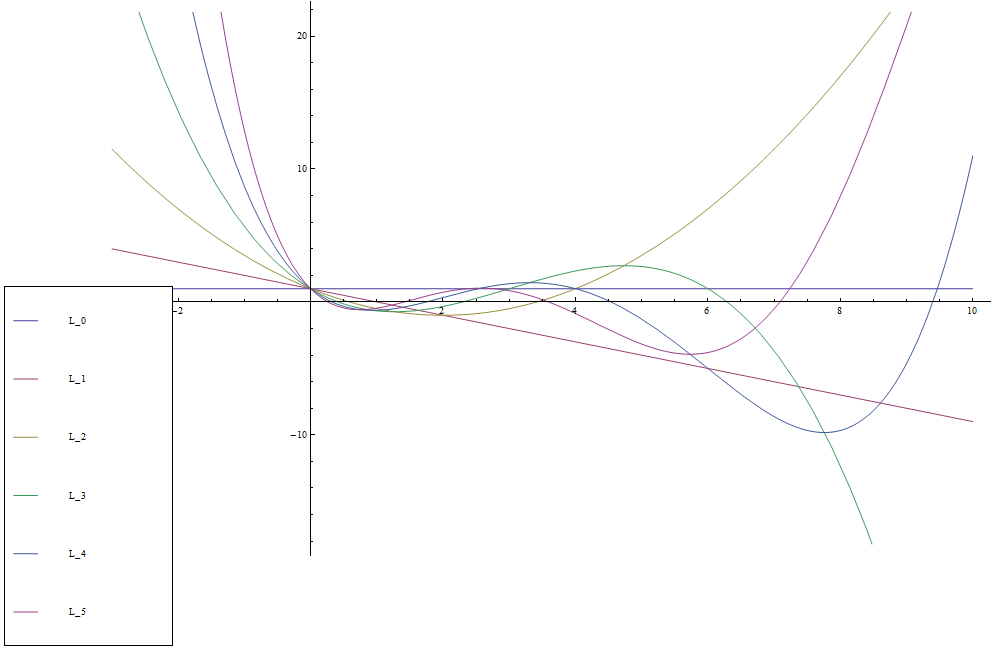Laguerre L
Laguerre's equation is $$x\dfrac{d^2y}{dx^2}+(1-x)\dfrac{dy}{dx}+ny=0.$$ One of the solutions of this differential equations are the Laguerre polynomials $$L_n(x) = \displaystyle\sum_{k=0}^n (-1)^k \dfrac{n!}{(n-k)!(k!)^2}x^k.$$ The first few Laguerre polynomials are given by $$\begin{array}{ll} L_0(x) &= 1 \\ L_1(x) &= -x+1 \\ L_2(x) &= \dfrac{1}{2}(x^2-4x+2) \\ L_3(x) &= \dfrac{1}{6}(-x^3+9x^2-18x+6) \\ L_4(x) &= \dfrac{1}{24}(x^4-16x^3+72x^2-96x+24)\\ \vdots \end{array}$$
Properties
Theorem: The following formula holds: $$\dfrac{e^{\frac{-xt}{1-t}}}{1-t} = \displaystyle\sum_{k=0}^{\infty} L_k(x)t^k.$$
Proof: █
Theorem: The following formula holds: $$L_n(x) = \dfrac{e^x}{n!} \dfrac{d^n}{dx^n} (x^n e^{-x}).$$
Proof: █
Theorem (Orthogonality): The following formula holds: $$\displaystyle\int_0^{\infty} e^{-x}L_n(x)L_m(x)dx = \delta_{nm},$$ where $\delta_{mn}=0$ when $m\neq n$ and $\delta_{mn}=1$ when $m=n$.
Proof: █
Theorem: The following formula holds: $$(n+1)L_{n+1}(x)=(2n+1-x)L_n(x)-nL_{n-1}(x).$$
Proof: █
Theorem: The following formula holds: $$xL_n'(x)=nL_n(x)-nL_{n-1}(x).$$
Proof: █
Theorem: The following formula holds: $$L_n'(x)=-\displaystyle\sum_{k=0}^{n-1} L_k(x).$$
Proof: █
